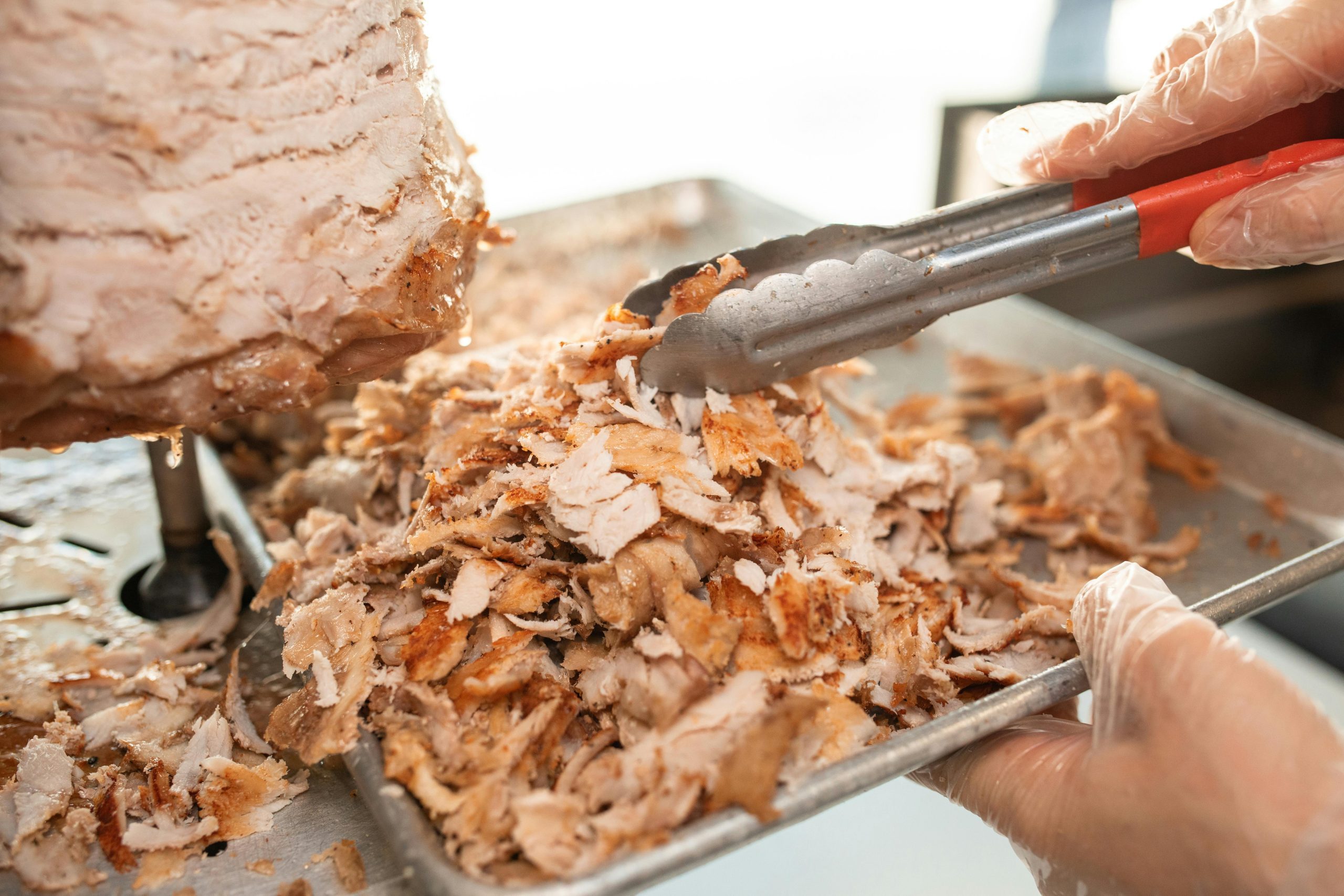India’s First Official Tasting Event for Cultivated Chicken
The future of sustainable food took a historic step forward in India with Biokraft Foods hosting the country’s first official tasting event for cultivated meat. Held in Mumbai, this groundbreaking event introduced attendees to a revolutionary food innovation that could change the way Indians consume meat.
Biokraft Foods, an Indian biotech company, showcased cultivated chicken meat that mimicked the flavor, texture, and nutritional value of traditional meat. By leveraging cutting-edge technology such as 3D bioprinting, Biokraft successfully created a product that closely replicates the sensory experience of conventional chicken. This innovation is a testament to how technology and tradition can come together to create ethical, sustainable alternatives for modern consumers.
The event welcomed leaders from prominent organizations, including PETA India, GFI India, CASMB, Brinc, YODA India, and the India Animal Fund. Their participation highlights the growing support for cultivated meat in India, particularly as a solution to address animal welfare concerns and environmental challenges.

A Vision for Sustainable and Ethical Meat Production
Biokraft Foods’ Commitment to Innovation
Biokraft Foods’ successful demonstration of cultivated chicken is a significant milestone for India’s food technology sector. Kamalnayan Tibrewal, Founder and CEO of Biokraft Foods, emphasized the company’s mission to revolutionize meat production through sustainable methods. He described the event as a historic occasion that brings India closer to a cleaner, more ethical food future.
The company has invested heavily in research and development to create cultivated meat products that not only taste like traditional chicken but are also healthier and more environmentally friendly. By adopting advanced processes like 3D bioprinting, Biokraft Foods ensures that cultivated meat retains the familiar texture and juiciness that Indian consumers expect from chicken dishes.
Tibrewal’s confidence in commercializing the product by year-end underscores the momentum behind India’s cultivated meat movement. He also noted the close collaboration with India’s Food Safety and Standards Authority (FSSAI), ensuring that cultivated meat adheres to regulatory standards and becomes widely accessible to the public.
Addressing India’s Growing Demand for Meat
India’s demand for meat is steadily increasing as more people incorporate protein-rich foods into their diets. However, this growing demand presents significant challenges, including concerns about food security, animal welfare, and environmental sustainability. Cultivated meat provides a solution that bridges these gaps without compromising taste or nutritional value.
Unlike traditional livestock farming, which requires vast amounts of land, water, and feed, cultivated meat is produced in a controlled environment with minimal resource consumption. This reduces the strain on India’s agricultural systems while offering a scalable way to meet growing food demands.
For Indian consumers, cultivated chicken represents an opportunity to enjoy their favorite dishes—like butter chicken, chicken tikka, and biryani—without the ethical or environmental dilemmas associated with conventional meat production. Biokraft Foods is paving the way for this exciting transformation.
Aligning with Global Sustainability Goals
The introduction of cultivated meat in India aligns with global efforts to address climate change and promote sustainability. Traditional meat production is a significant contributor to greenhouse gas emissions, deforestation, and water scarcity. Cultivated meat, on the other hand, drastically reduces environmental impact by eliminating the need for large-scale animal farming.
Biokraft Foods’ innovative approach supports India’s commitment to achieving the United Nations’ Sustainable Development Goals (SDGs), particularly those related to food security, climate action, and responsible consumption. By offering a sustainable alternative to conventional meat, the company is contributing to a greener future for both India and the world.

Cutting-Edge Technology: 3D Bioprinting for Cultivated Meat
How 3D Bioprinting Works
At the heart of Biokraft Foods’ cultivated chicken success lies 3D bioprinting technology, a cutting-edge process that replicates the structure and texture of real meat. Bioprinting involves layering muscle and fat cells in a precise arrangement to mimic the natural composition of animal tissue. This method allows scientists to create cultivated meat that feels and tastes just like traditional meat.
The technology starts with a small sample of animal cells, which are then cultured in nutrient-rich environments to promote growth. Once the cells multiply, they are used in 3D bioprinters to create meat products with the desired thickness, juiciness, and texture. The result is a sustainable and ethical alternative that satisfies even the most discerning meat lovers.
3D bioprinting also offers scalability, making it an ideal solution for India’s growing population. As the technology advances, companies like Biokraft Foods will be able to produce cultivated meat on a larger scale, making it more affordable and accessible for everyday consumers.
Meeting Taste and Texture Expectations
One of the key challenges in the cultivated meat industry is ensuring that the final product replicates the sensory experience of traditional meat. For Indian consumers, texture and taste play a critical role, particularly in dishes where meat is a centerpiece. Biokraft Foods’ use of 3D bioprinting technology successfully overcomes this challenge by producing cultivated chicken that mirrors the chewiness, juiciness, and flavor of conventional chicken.
During the tasting event, attendees praised the cultivated chicken for its authentic taste and texture. This positive feedback reinforces the potential of 3D bioprinting to meet consumer expectations and drive acceptance of cultivated meat products in India.
By delivering on taste and texture, Biokraft Foods has positioned itself as a leader in India’s emerging cultivated meat industry. Their innovative approach ensures that Indian favorites like tandoori chicken, kebabs, and curries remain a part of the country’s culinary tradition while embracing sustainability.
A Step Towards Food Security
India’s population growth and limited agricultural land present significant challenges for food security. Traditional livestock farming requires vast resources, making it increasingly unsustainable in densely populated regions. Cultivated meat, produced through 3D bioprinting, offers a scalable and resource-efficient solution to this problem.
By reducing dependency on conventional farming, cultivated meat can help India achieve greater food security while conserving land and water. The technology also minimizes the risk of zoonotic diseases, which are often linked to livestock farming, ensuring safer and cleaner meat production.
With Biokraft Foods leading the way, 3D bioprinting technology is set to play a critical role in India’s efforts to build a resilient and secure food system.

Conclusion: A New Era for India’s Food Industry
Biokraft Foods’ introduction of cultivated chicken at India’s first official tasting event marks the beginning of a transformative journey for the nation’s food industry. By combining tradition and cutting-edge technology, the company has created a sustainable, ethical, and scalable solution to meet India’s growing demand for meat.
The success of this event highlights the immense potential of cultivated meat to address critical issues like food security, animal welfare, and environmental sustainability. With 3D bioprinting technology at its core, Biokraft Foods is redefining how meat is produced and consumed in India.
As Biokraft prepares to commercialize its cultivated chicken products, Indian consumers can look forward to enjoying their favorite meat dishes without compromise. This milestone is not just a win for Biokraft Foods—it’s a step towards a greener, healthier, and more sustainable future for India.









